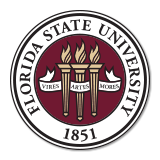Articles/Journals
E-Books
Course Requirement
Only after attainment of a minimum GPA of 3.20/4.0 in at least five graduate-level courses, a minimum of 1 Math (EML 5060/5061, MAP 5345/5346), 2 Core (major area), and 2 ME Grad courses, is a student allowed to proceed with the Preliminary Examination. Students can choose the 5 best-graded courses to satisfy the minimum GPA requirement.
Major Subject Area Courses
| Dynamics & Controls | Thermal Fluids | Mechanics & Materials |
|---|---|---|
| Introduction to Controls | Fluids Dynamics | Continuum Mechanics |
| Advanced Dynamics | Heat Transfer | Computational Material Physics |
| - | Aerodynamics | Solid Mechanics and Electromagnetics of Continuous Media |
| - | Gas Dynamics | Metallurgy |
| - | Computational Fluid Dynamics | Design Using FEM |
| - | - | Materials Selection in Design |
Doctoral Committee
During 2nd Year, the student (in consultation with major professor) forms the Doctoral Committee to initiate the Preliminary Exam process. The committee composition:
- Major professor (Chair, Prospectus & Dissertation)
- ME Faculty member in your major area (1) (Chair, Prelim Exam)
- ME Faculty member outside major area (1)
- A tenured faculty member from outside the Department of Mechanical Engineering (Univ. Rep.)
- Optional (at the discretion of Major Professor): Additional member in the major area
The 4 primary members must be tenure-track faculty, holding the rank of Professor, Associate Professor, or Assistant Professor. Assistant professors may not serve as the University Rep. The Doctoral Committee is responsible for both administrations of the Preliminary exam and oversight of the student's program of study. Committee members must be approved by the ME Graduate Committee. The preliminary exam shall be attempted during the 2nd year.
Notes:
- Participation of the University Representative during the oral presentation of the exam is optional.
- Major professor doesn’t take part in the evaluation (scoring) process.
- The page limit (20 pages) for the research proposal indicated above is maximum. A good quality research proposal of shorter length should not be penalized.
- The students are encouraged to discuss the whitepaper and research proposal with their advisor before submission to the committee.
- If a student fails the exam, Chair of the committee must ensure that detailed feedback is provided to the student.
- If a student fails the exam, he/she can either select a new topic or continue to work on the same and improve based on the feedback provided.
Preliminary Exam Format (Timeline for Spring 2022)
| Milestone | Complete No Later Than | Initial & Date (Student)* | Initial & Date (Chair)* |
|---|---|---|---|
| Formation of Doctoral Committee | Prior to Spring 2022 Classes
CLASSES BEGIN |
||
| Student submits 1-page whitepaper on research proposal including problem statement, intellectual merit, and boarder impact to the Doctoral Committee. | Week of January 10, 2022 | ||
| Doctoral Committee reviews the whitepaper, makes suggestions, provides comments, and may suggest modifications to the topic (~one week). | Week of January 24, 2022
MLK HOLIDAY |
||
| Student submits a 20-page (maximum) research proposal including theoretical framework, literature review (including a seminal/review paper), knowledge gaps, and proposed research (~6 weeks). | Week of March 7, 2022
SPRING BREAK |
||
| Committee reviews proposal & provides comments and questions (~2 weeks). | Week of March 21, 2022 | ||
| Response submitted by the student (~2 weeks). | Week of April 4, 2022 **DROP DEADLINE |
||
| Oral presentation 30 min – Q&A (time as needed) | Week of April 18, 2022
FINAL EXAMS |
*Each milestone should be initialed by the student when submitted and initialed by the advisor/committee chair when written feedback is given and discussed.
**STUDENTS WHO DO NOT COMPLETE THE EXAM PROCESS IN SPRING 2022, MUST DROP THE COURSE AND REQUEST THE EXAM FOR SUMMER 2022!
Preliminary Examination Evaluation Rubric
| Evaluation Criteria | Excellent | Good | Fair | Poor |
|---|---|---|---|---|
| Formation of Doctoral Committee | ||||
| Preciseness and Quality of Research Problem Definition | ||||
| Technical Content | ||||
| Importance to Mechanical Engineering | ||||
| Style and Clarity (Format & Language Proficiency) | ||||
| Completeness | ||||
| Uncertainty of Computed Results or Experimental Data Adequately Addressed in the Proposal | ||||
| Intellectual Merit of the Proposal | ||||
| Responses to Written Questions / Suggestions from the Committee Members | ||||
| Communication Skills during Oral Presentation | ||||
| Responses to Oral Questions / Suggestions from the Committee Members | ||||
| Overall Recommendation of the Committee member | Pass / Fail | |||

